Why Dark Souls fans should embrace Lords of the Fallen, not condemn it
It’s easy to get upset when you perceive something as ‘ripping off’ a thing that you love. Offended or angry, even. People get really attached to the stuff they like. They integrate it into their identity, and form a degree of their self-perception around it. Thus, if it feels like something is copying that stuff, then it also feels like that something is encroaching upon one’s personal being. Even threatening to take something away by diluting the specialness of the original thing.
All of which psycho-rambling leads me on to Lords of the Fallen, the upcoming action-RPG from CI Games and Square-Enix. As you might already be aware, Lords is very much, very openly inspired by--amongst other games--Dark Souls. As a long-time Souls fan myself, I initially felt a slight knee-jerk. I’d put over 100 hours into the first game, so naturally I was a little protective of it. But then I played Lords of the Fallen, and stopped worrying.
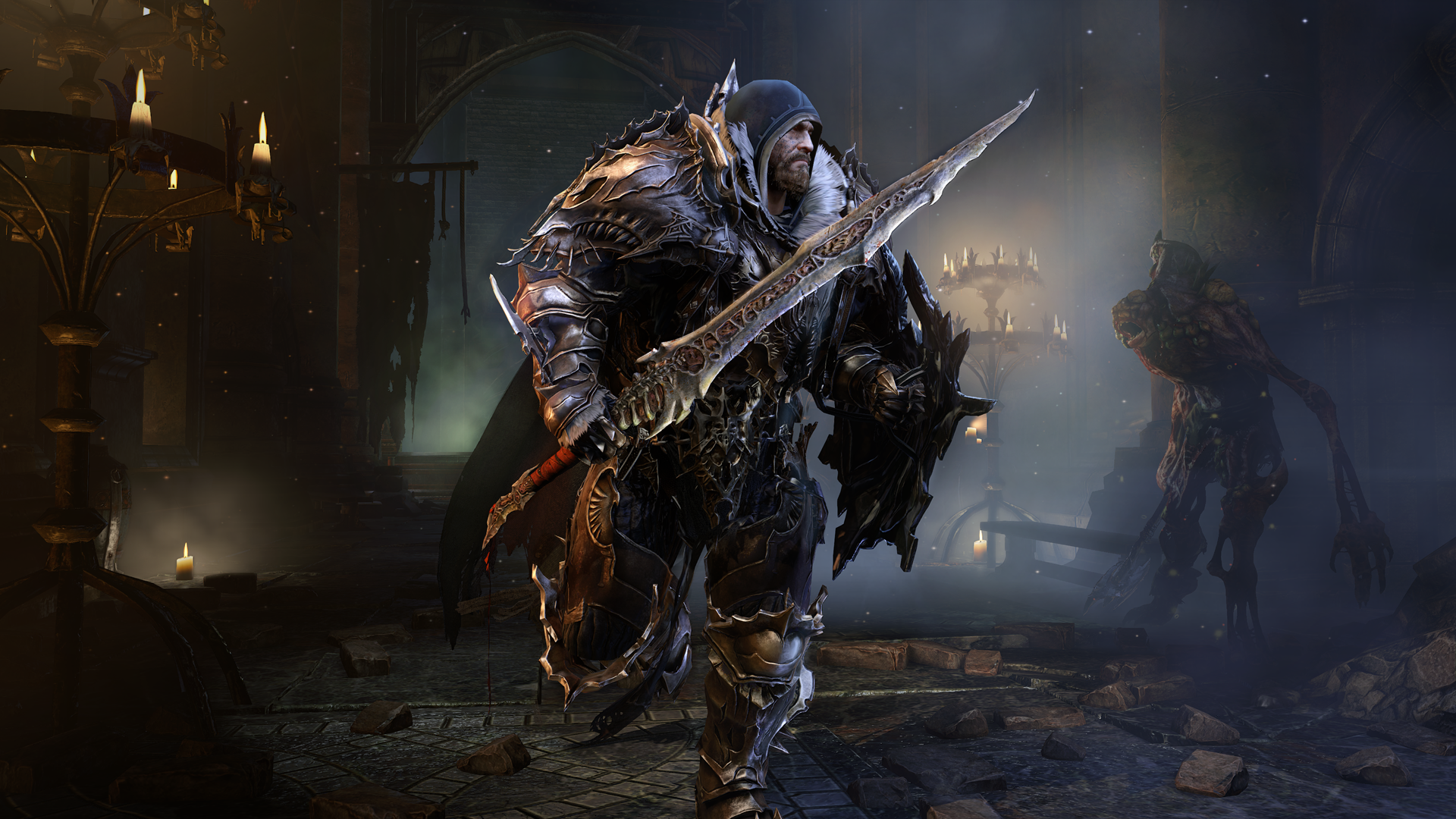
You see LotF, based on my two hands-on demos so far--the most recent of which was at last week’s Gamescom--looks to be a great game. Not just one that simply succeeds in channelling what Dark Souls does well, but one which uses that point of inspiration as a springboard to being a great game in its own right. In fact it’s shaping up to be one of the most exciting action-RPGs of 2014.
When you first get your hands on it, you’ll notice only the similarities. The hefty, powerful, but desperately vulnerable lead character. The deliberate, tactical combat, focused upon different speeds and weights of melee tools, and garnished with magic. The unassuming, but utterly brutal clusters of enemy mooks, any one of whom can finish you off in seconds if you’re not careful. Even the control scheme and button-mapping are the same. It would be easy to be cynical. But you shouldn’t be.
Because really, none of that stuff prevents Lords from being its own game. Because while Dark Souls (and to a lesser degree its own precursor, Demon’s Souls) popularised the gameplay style, it doesn’t own any of it. That’s the great thing about games (or any medium forged amid the repeated iteration of ideas, which is basically all of them). Every idea inspires a whole bunch more. And then those ideas beget more of their own, until the initial seed has spawned a vibrant forest of eclectic life.
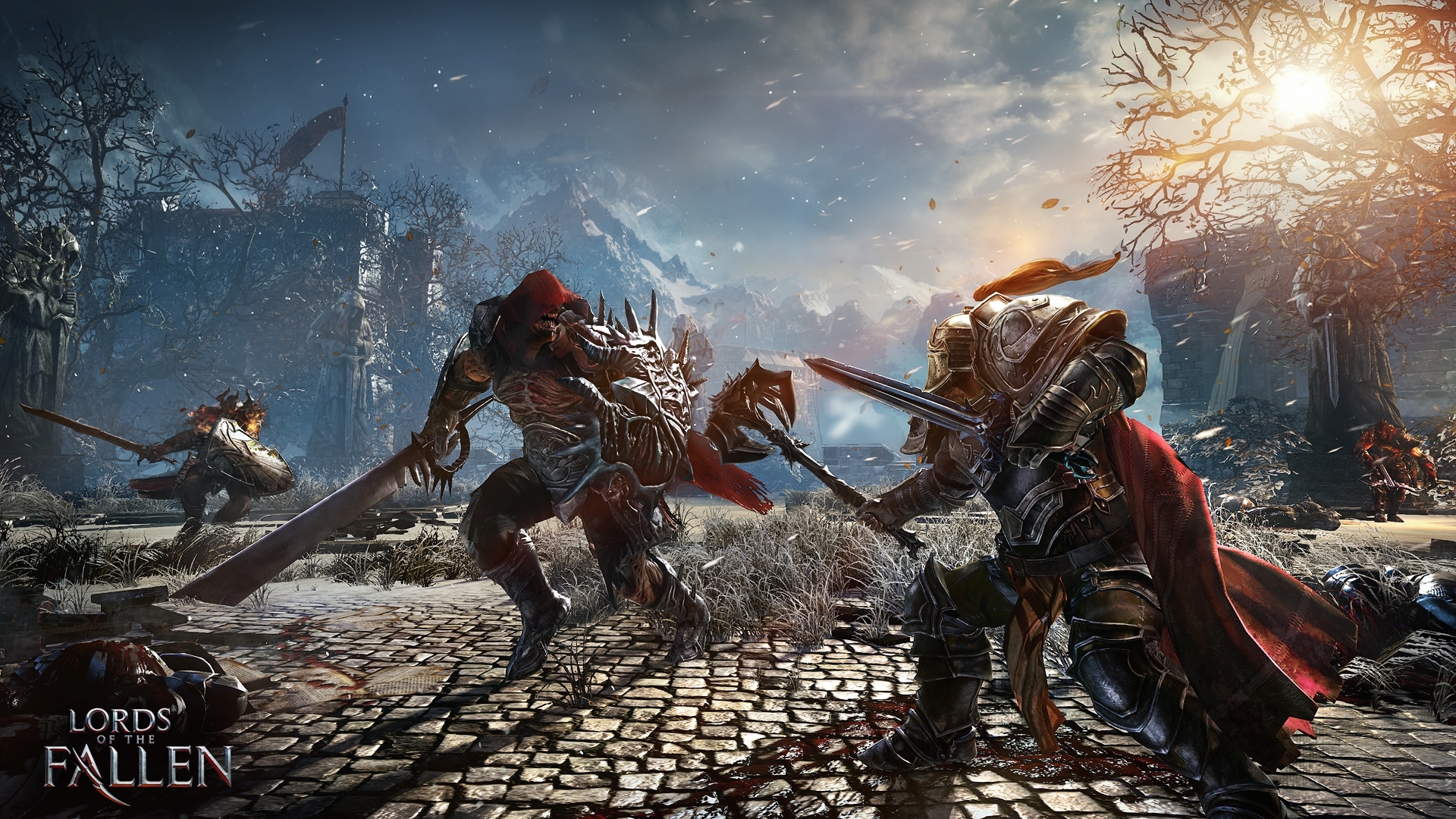
Put it this way. I still remember a time when early, post-Doom FPS were referred to--by default, by press and player alike--as clones of iD’s Mars-based monster-masher. We don’t do that any more. Nor do we complain when shooters use the same control scheme as Call of Duty, or when Destiny transplants the shooting mechanics of Halo into a different scenario. And that’s what’s going on with Lords of the Fallen. It’s just that the first games to iterate on any distinctive idea always seem more brazen.
But there are, of course, many good reasons for Souls fans to get involved beyond the simple fact that it’s okay for Lords to exist. While the core philosophical hook of both games utilises the same points of cerebral, high-risk combat and iterative learning through looped gameplay--and so far Lords does seem to understand the finer points of that model, rather than simply copy the broad strokes--the differences Lords bolts around them give it serious value.
Weekly digests, tales from the communities you love, and more
As I’ve mentioned before, the combat, while demanding and precise, has a different feel and flow to that of its inspiration, more fluid and immediate, and with an almost arcade-like sense of satisfying impact. Where Souls’ comboing is more about exploiting hit-stuns to score extra attacks, Lords’ more freely-flowing beatdowns have a more open, accessible, versatile feel, while remaining no-less of a stern discipline.
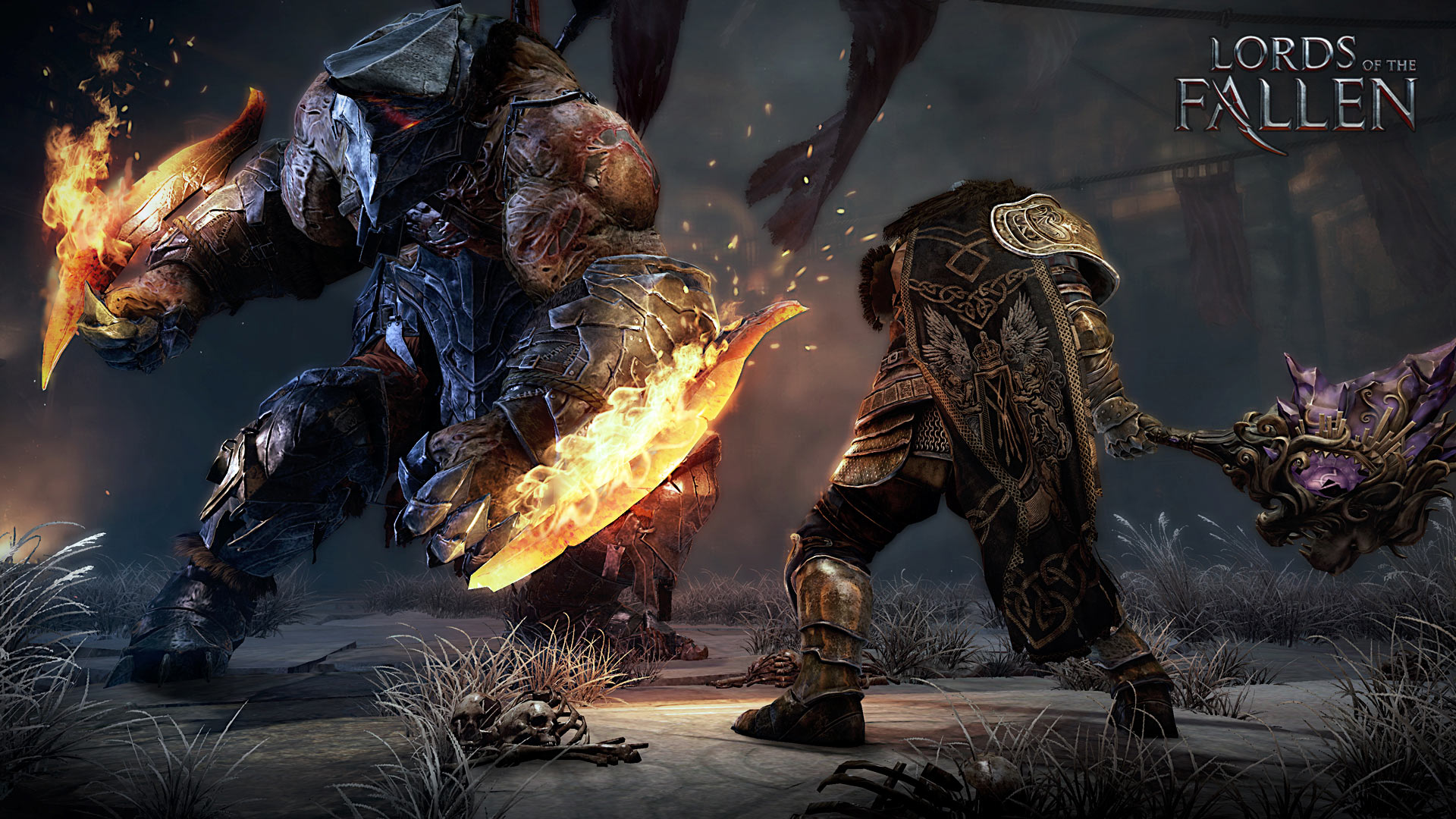
Similarly, gear and magic are more instinctive to manage, and feel a little bolder in their use. In the case of the latter, there seems to be a more aggressive bent to spell designs, as much akin to that of an action-adventure game or a fighter as that of an RPG. Time-slowing, magical clone distractions… Where Souls’ magic leans towards multiple, intricately different variants of similar effects, Lords favours blunter, more uniquely conceptual, overtly individual attacks and buffs. No less satisfying, but designed with different intent, for immediacy and accessible clarity.
Quick, agile enemy kicking your arse? Bathe the room in the blue light of sluggish time, and wail on him. Tough, slow enemy causing you trouble? Drop a magic clone, hide around the corner, and then smash him in while he’s locked into a slow-charging, ultimately fruitless attack against the wrong target. Philosophically, it’s the sort of approach to tertiary powers that you’d find in a Bayonetta, or a stealth-action game, only focused through a lens of more deliberate RPG battling.
And then there’s the world-building. If the previous differences haven’t provided enough new texture, then this certainly will. Dark Souls' Lordran and Drangleic are bleak, spartan, obtuse places, filled with unspoken lore, but providing only barren confusion to those not willing to read between the lines between the lines between the lines. Lore-hunting is of course one of the great joys of DS, but it’s certainly not for everyone. Lords of the Fallen promises a more traditional approach, its speaking lead-character part of a currently-functioning, fleshed-out story with explicit details and justifications.
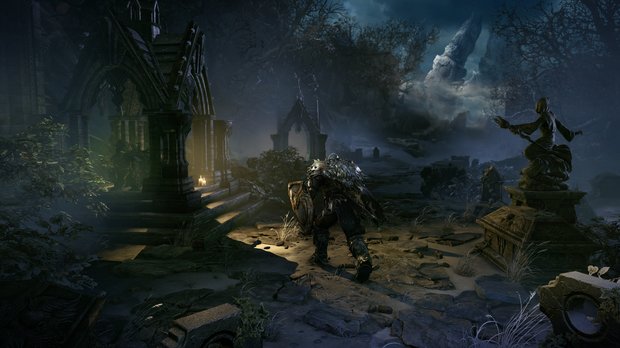
Where Dark Souls' narrative meat largely exists hidden in the shadows of its world’s past, Lords is a world right now. And that richness is reflected in its production design. With its gorgeous, grandiose, full-coloured look falling just the right side of overblown, Lords is again a game that you’ll abstractly recognise but won’t have actually seen before. Its bold, solid visuals at times evoke the likes of Darksiders, World of Warcraft, Peter Jackson’s craggy, spiraling Middle-earth, and a whole host of classic comics and book covers. And being our first taste of new-gen exclusive RPG-action, it can be rather a stunner with it. Brutal, bold, brainy and beautiful, Lords certainly doesn’t feel like the pretender that it might. Rather, it feels robust, fresh, and enticing, despite the familiarity of its core values.
And that’s a great thing for Souls fans. Because, as I’ve said for a long time, the problem with the way that sequels and iterations dominate our medium is that we often mistake repetition of an experience regaining the original joy of that experience. That is to say, we try to emulate the feeling that certain games gave us the first time round by playing do-overs of those same games. And that doesn’t always work.
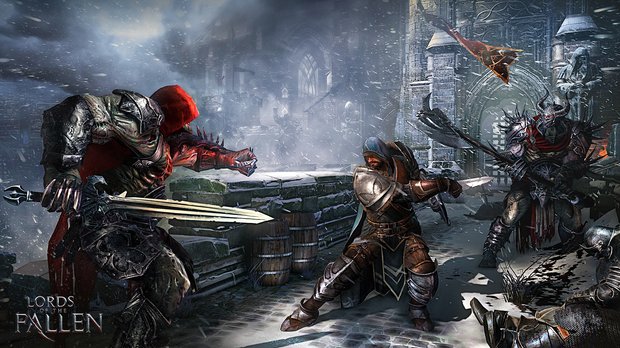
There’s a reason that the really special games rarely stand up to straight, more-of-the-same sequels. There’s a reason that Portal 2 works on an entirely different structural and narrative scale to its predecessor. There’s a reason that Call of Duty fatigue exists, and there’s a reason that Rapture lost some of its sense of terrifying wonder in BioShock 2. We don’t really want repeats of what we’ve had before. We want games with the same values that give us the same kind of emotional and intellectual responses.
With Dark Souls 2 having resolutely scratched many residual itches--while also disappointing some fans with its familiarity, despite its objective greatness--and From Software now evolving its concept in a radically new direction with ‘official’ spiritual successor Bloodborne, the stage is wide open for a game like Lords of the Fallen. It’s immediately, reassuringly recognisable in the way that it picks up Souls’ ideas, but it also promises to wrap a new experience around those bones. So give it a chance. I certainly intend to. Rise of the Triad and Duke Nukem 3D certainly managed to hit the spot for Doom fans while carving their own path, so there’s no reason Lords couldn’t do the same.



